Sign up for daily news updates from CleanTechnica on email. Or follow us on Google News!
Buncombe County, Water Scarcity, & The Muddy Submerging Waters of Climate Change
Starting on Day 4 and moving back to Days 0–3, here’s a look at what’s been happening in the Appalachians after Helene.
Day 4
His eyes widened in alarm as I suggested to the kind man in the elevator, “That’s climate change for you—a hurricane hitting the North Carolina Appalachians.” Maybe he had heard of the concept. Perhaps he wasn’t sure how it fit in. But his eyes instantly focused on the concept, the connection. We were comparing our fortunes in the elevator after only a few days of devastation & departure after Helene. They were from Georgia, and he claimed they had never experienced a hurricane. Hurricanes don’t make it to Georgia—in the past. It sounded as though they had lost a portion of their home. His eyes widened incredulously.
Day 0
I scarcely noticed the rain as I fixated on the storms in Florida. Because of the warm surface temperatures of the Gulf waters, storms had intensified swiftly, unusual patterns formed, and forecasting became increasingly difficult. Several of my children and grandchildren were in Florida. Side note: Millennials and the younger generation are not entitled, since they have been left less money and time for housing, employment, and a safe ecology, a naturally balanced environment. Perhaps a handful of people took Rachel Carson seriously. Not enough, though.
I was attempting to get home with food and water, as I lose power in the mountains often during storms. The river was rising. I’d best take the other steeper road home, I thought.
I’m a seasoned water person. In my first encounter with a tropical storm, I carried a 6-month-old baby over my head and out of flood waters. Naive, young, and strong on the Gulf Coast circa 1979. A Yankee. I learnt quickly. I’ve been in about seven hurricanes of various sizes. And large tropical storms. And a tornado at the age of 5.
I slept soundly after receiving a text from Zach claiming that it was coming to me more than him. Sure, I thought. My friend who works with the Red Cross texted the same thing. I fell asleep to the sound of the water, concerned about Florida and upset about the misinformation and climate deniers. There was much to be upset about: climate change, late-stage capitalistic hell, and the homeless families in Asheville I’d talked with recently in the park—and their children with beautiful eyes. The rain helped put me to sleep.
Day 1
Texts from Zach and Mira came in the morning. Oh, so nice. Knowing I was concerned, they were letting me know they were all okay. Mira’s said, “I saw the storm right by you when I looked.” Um. They were checking on me? Then my brother. That was unusual. Then Kim. I looked out. The creek was higher than normal. Rain was slowing. I still had no concept that I had slept through another hurricane. No power. No water. Now that was more unusual. I couldn’t flush the toilet. I could not wash a dish. I had been listening to shows about water, reading research on water, and listening to community radio since 1979. All kinds of information about water scarcity and water security were floating in my consciousness, more acutely now. I looked for the Life Straw James Ayre gave me.
It’s not even raining now, but the wind is blowing and the creek behind my place has drained a bit. It doesn’t seem that bad to me, but I hear it is (neighbors talking).
I walk outside, and my neighbor waves me forward. To see her astonished look moves me. Other neighbors are clearing a path to the street.
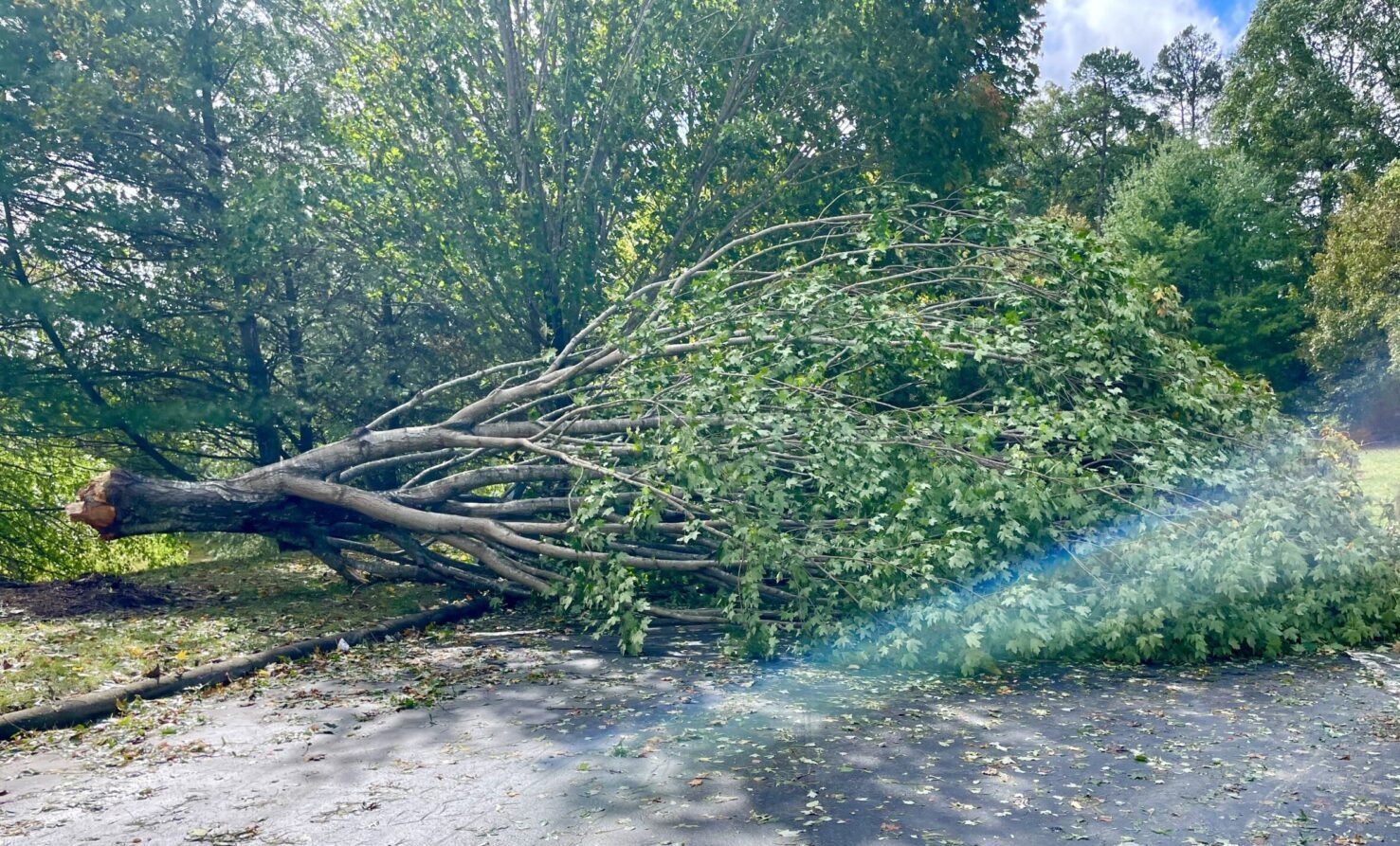
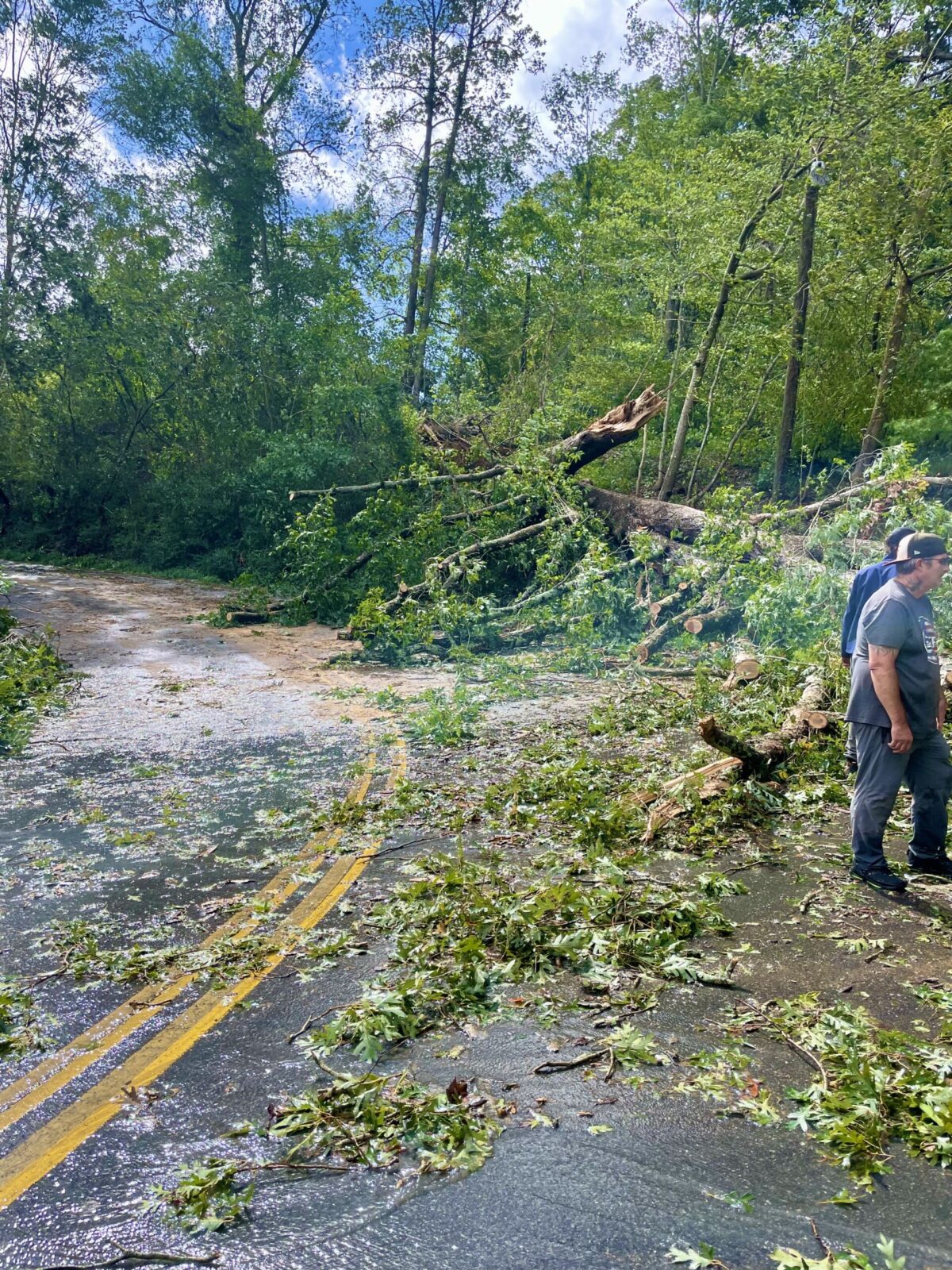
I had water, but another neighbor did not—and no car. I decided to venture out to try and find more for those who needed some. I knew enough not to go down my favorite way by the river. It was only later I realized how submerged it was. The road I normally drive on is below—under that water.
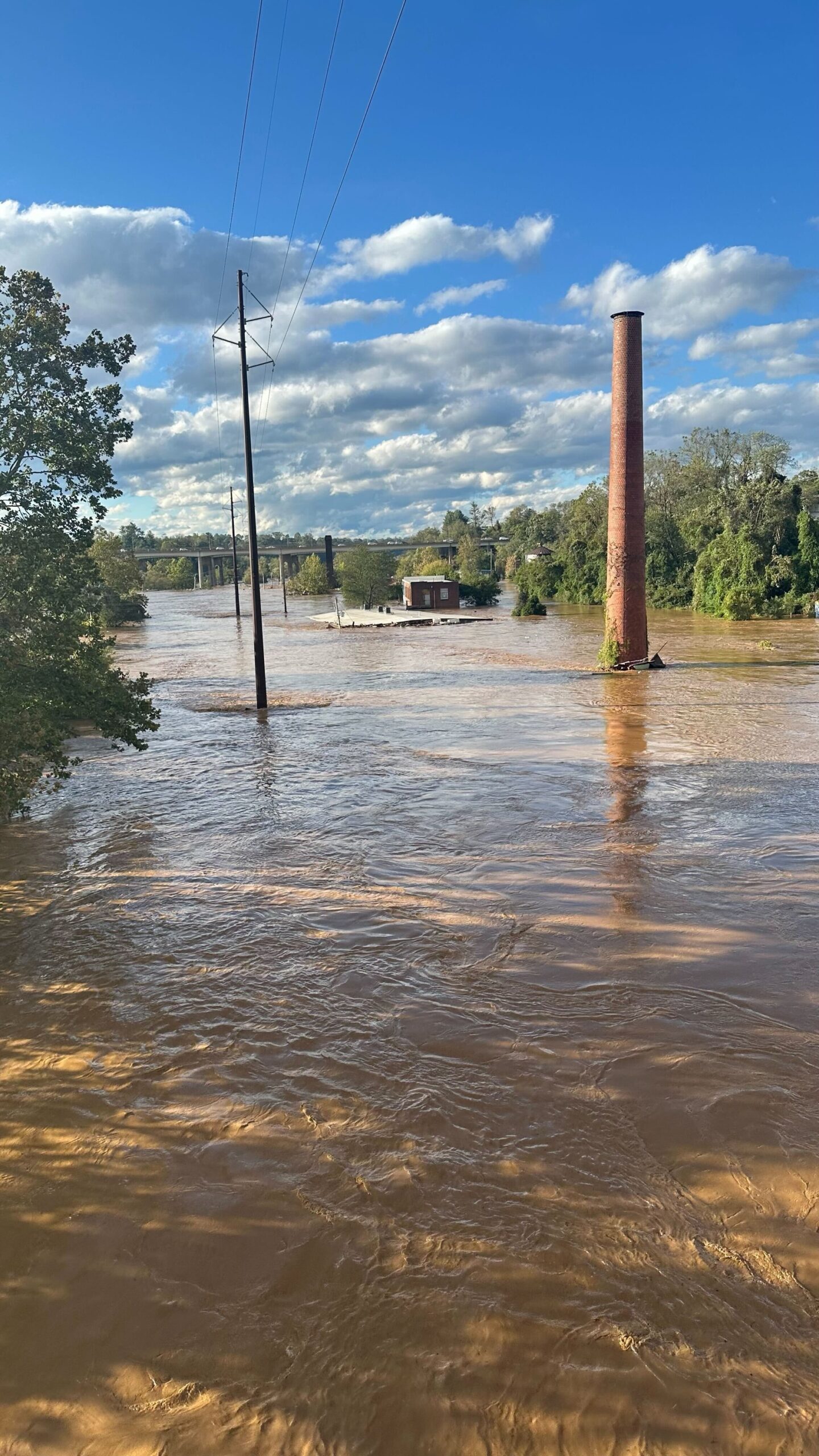
I drove toward the main road that either led downtown or to West Asheville. I decided that West Asheville was safer and headed towards the progressive section. The concerned young people had been out for weeks there, canvassing the streets to sign up everyone they could to vote. Many new neighbors, formerly ambivalent and discouraged Bernie supporters, and overwhelmed people were motivated to get out to vote. I wondered, would they make it to the polls after this?
No traffic lights; lots of polite, slow drivers—everyone going on water missions. No gas stations were operating. I looked at the range in my EV. It was fine. I passed a major grocery store. All dark. Closed. Another closed. A convenience store closed. All the food going to waste.
I thought of the West Asheville corner market and drove towards it. All dark. A line out the door. I had hope. I got in a long line and walked in slowly, picking up water in any form I could find—coconut water, for example. The cashiers seemed like beautiful woke angels of progressive West Asheville. They were working in the dark on paper, writing down credit card numbers on paper with amounts owed. Everyone was caring and polite. The line moved slowly. I returned to my neighbor with success and water. My range was lower. I told another neighbor about the West Asheville market. I lit candles and read a book I’d been curious about. I slept well. No hum, no electric currents, pure dark.
Day 2
A charge—that’s what was on my mind. My texts were not delivered. I drove to a charger. It was not working. I drove downtown to another—an obscure one maybe. Maybe. Traffic lights were still out. Not a lot of hope. When I drove to that particular block, though, a traffic light was on. The charger was on! I flashed back to Hurricane Irma. The same thing had happened. All gas was out, but an out-of-the-way, obscure charger was on. What fortune. I love electric cars.
There were two to three blocks flowering with people finding a few city buildings with WiFi on. Groups collected on sidewalks by a few stores. A hotel was dark but had WiFi. Someone was giving out food. People were stunned, meandering, and being kind. I found an outside plug on a main street and charged my computer. I walked around town. Conversations awoke spontaneously. I listened to the town hall/community meeting on the radio in my battery-electric car. The city officials sounded tired but steady. They were reticent about naming the community as the one with the most loss of life. They were reticent about saying when the water would be restored.
Another area that signed up so many fresh young people to vote just a week ago was flooded. Under that water is the road I normally drive home on.
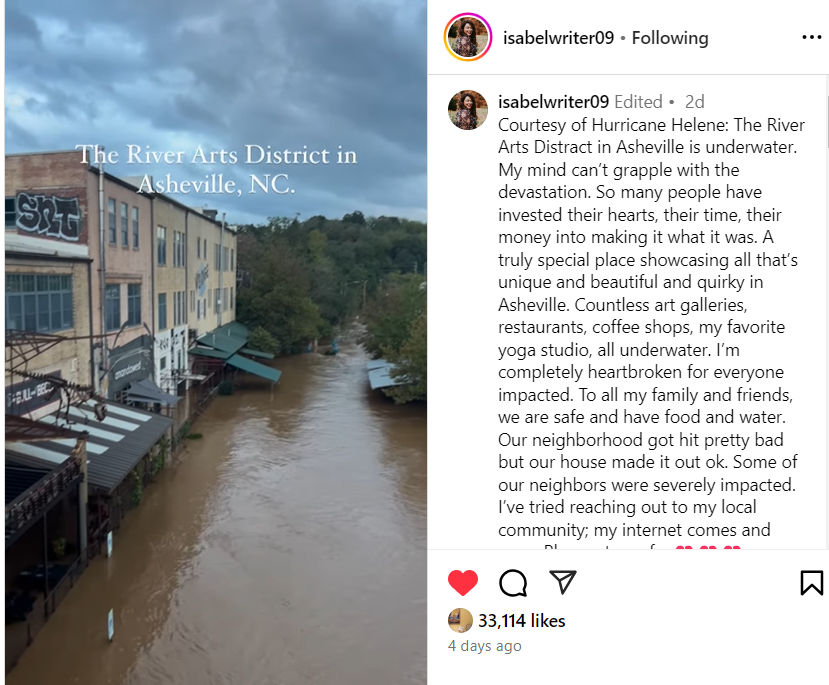
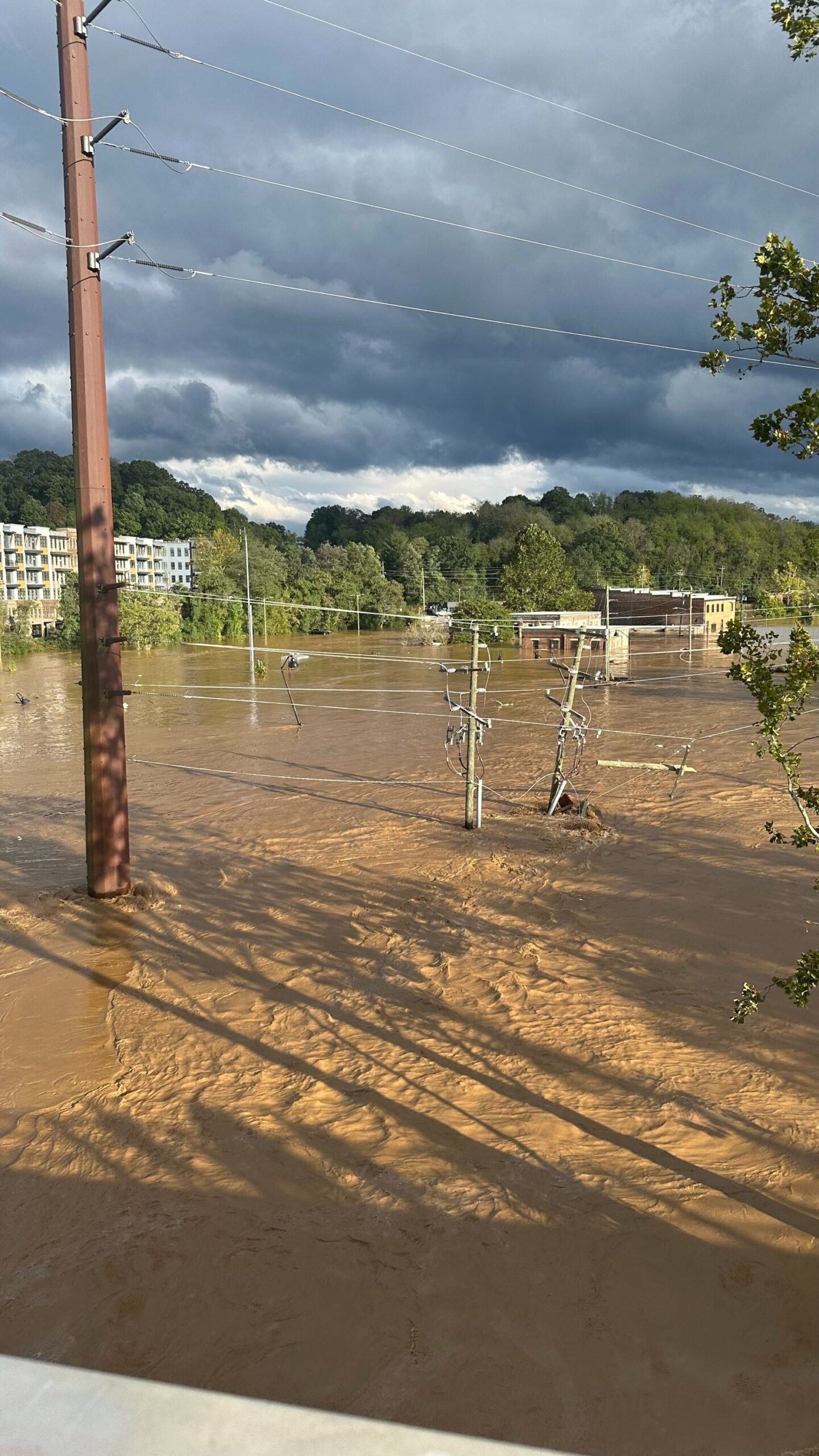
I drove home another way. No lights. Polite traffic. I was looking forward to reading more. The book was creatively well written but cold, and the protagonist and antagonist were all mixed up and soulless. The author had made the ecology activists into corrupt people without clear thinking. Disappointing but talented. Cold. Nothing like the warm activist ecologists I know.
I longed for a shower. I was using water sparingly to wash my face and hands.
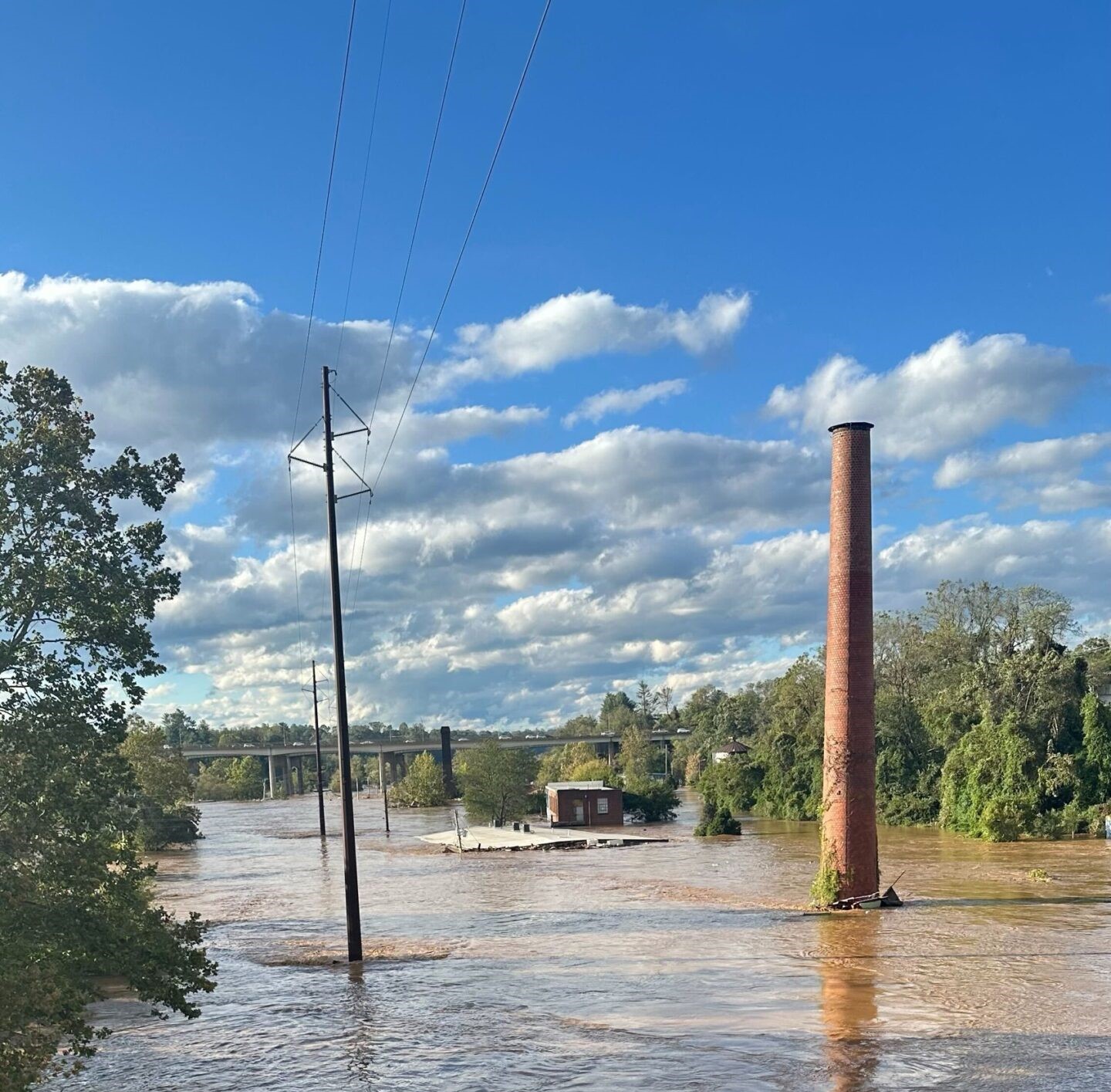
Day 3
I drove back to the once obscure charger. People were finding it. I told everyone that I could show them how to start an EV charge. Many drivers only charged at home, and pulling up an app without WiFi and phone service was not possible. One EV owner (who owned a Chevy Bolt for a year) was trying to simply pull the ChargePoint plug out aggressively. I noted that they were going to break it. “Let me help.” He had no idea how to use a public charger. It was one of 4 chargers near the 3-block radius that had power on day 2.
More water runs helped the few I could to stock up on water. No gas stations were open. I thought about my children worrying about me, and I longed for a hot sauna, an ice bath, or even a lukewarm shower. Or wondered if I should try to leave due to the community/town hall meeting I listened to in my battery electric car. I understood the problems would take time to fix. How much time?
The city lost all electricity, and a major water pipe busted. The water was shut down as a result. Town officials were reticent about estimates on timing, and still reticent about vocalizing which community(s) had the most loss of life. Probably on days 2 and 3, I heard that maybe in 2 weeks the city could get the water and the plumbing back on in Asheville. I understood waterborne illness, water deficiency, water scarcity, and bacteria. I decided that the best I could do was help some neighbors get more water and move on till it was remedied. It would be one fewer in the situation (or rather two, as I was caring for another sentient being).
Major highways were out. Could I even get out of town? I had a close friend in Raleigh who kept texting me to come and stay with her. No, that highway was completely out. I knew I could make it to Charlotte. Or rather hoped that maybe I could.
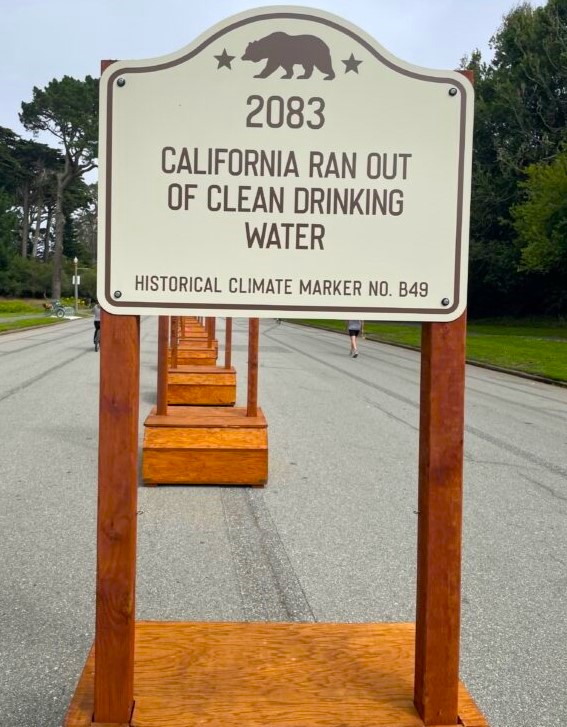
Day 4, to be continued…

Have a tip for CleanTechnica? Want to advertise? Want to suggest a guest for our CleanTech Talk podcast? Contact us here.
Latest CleanTechnica.TV Videos
CleanTechnica uses affiliate links. See our policy here.
CleanTechnica’s Comment Policy





